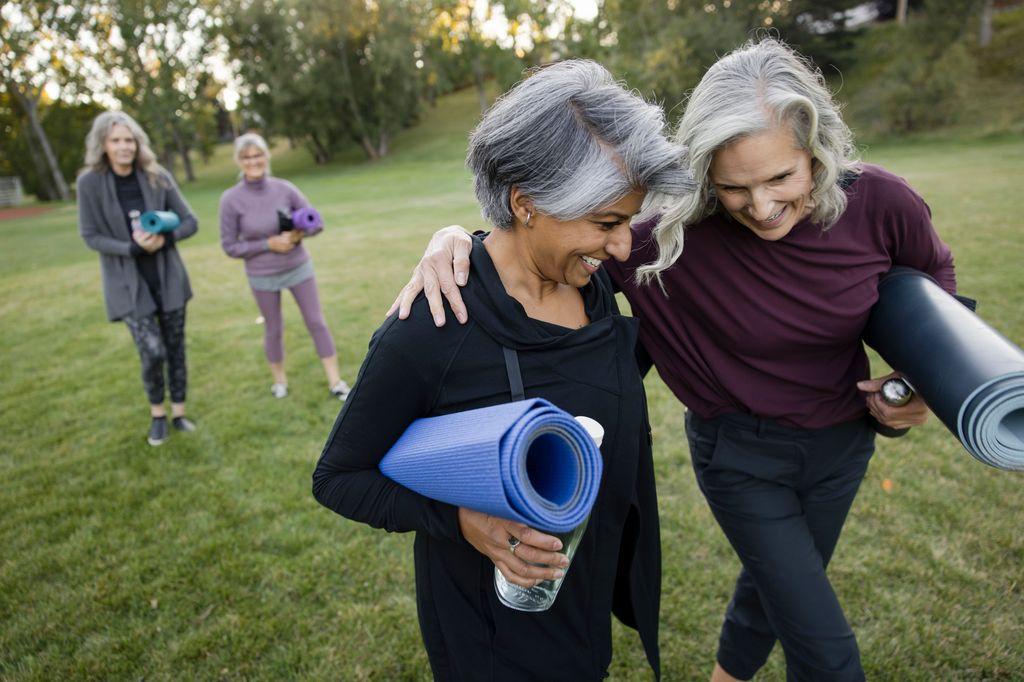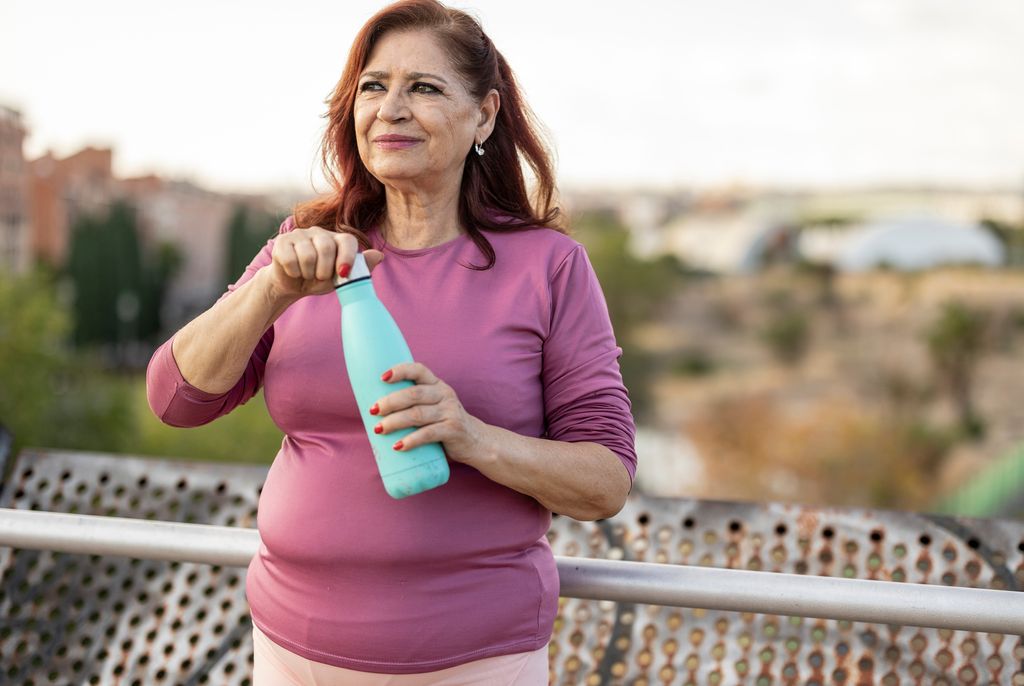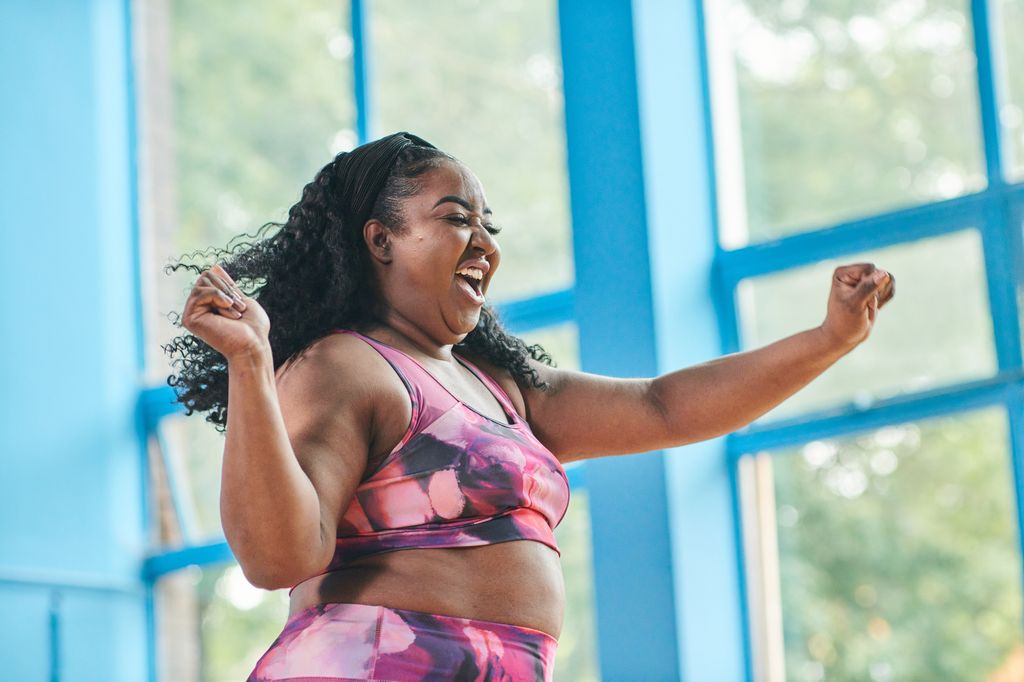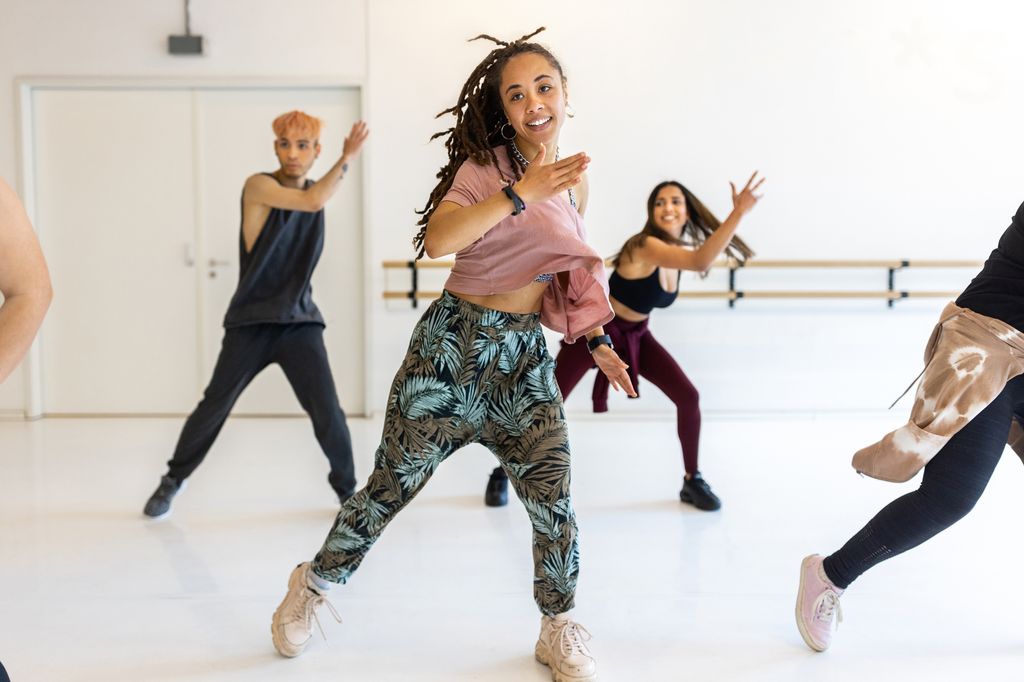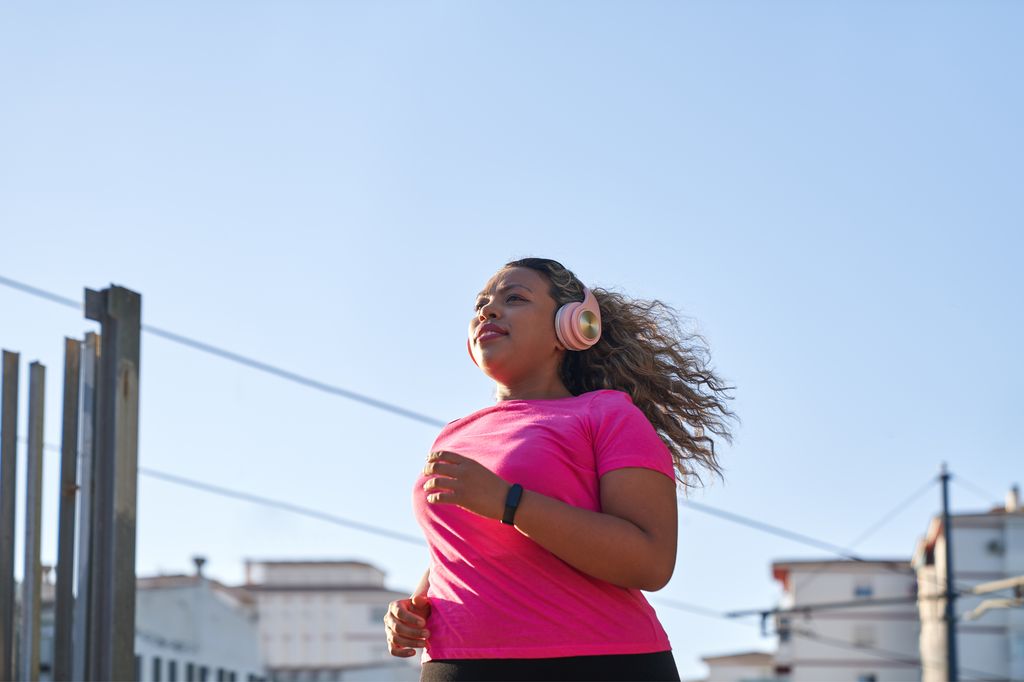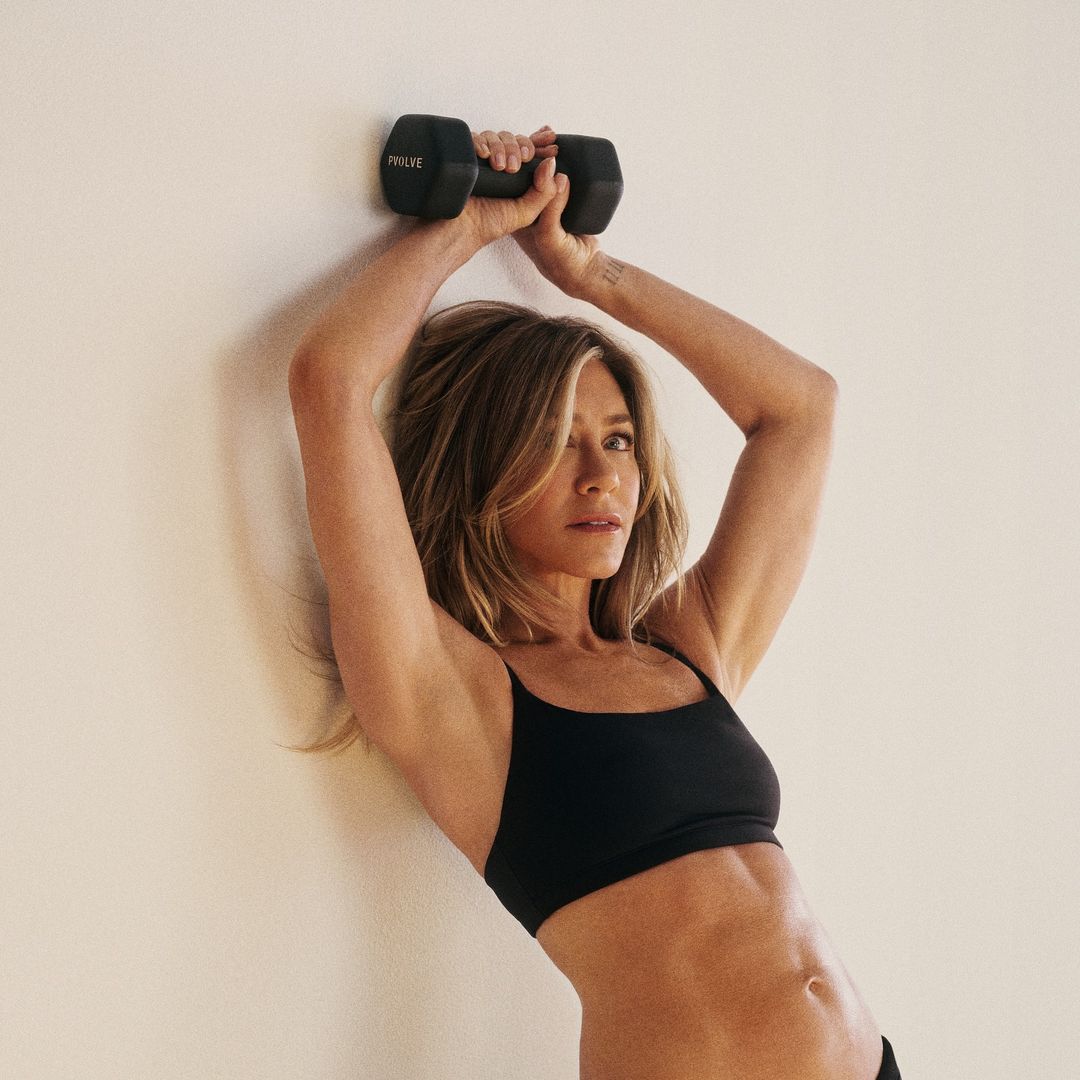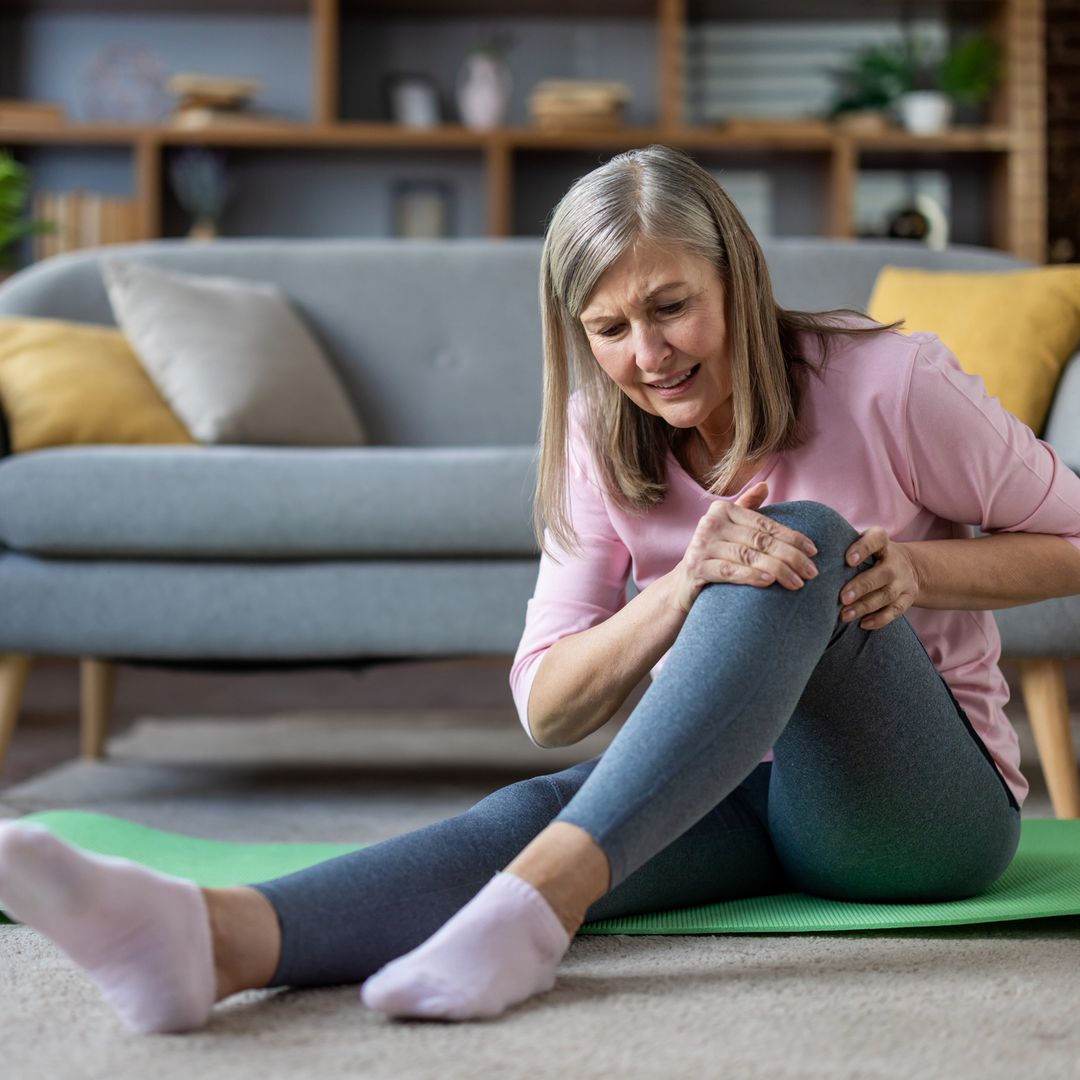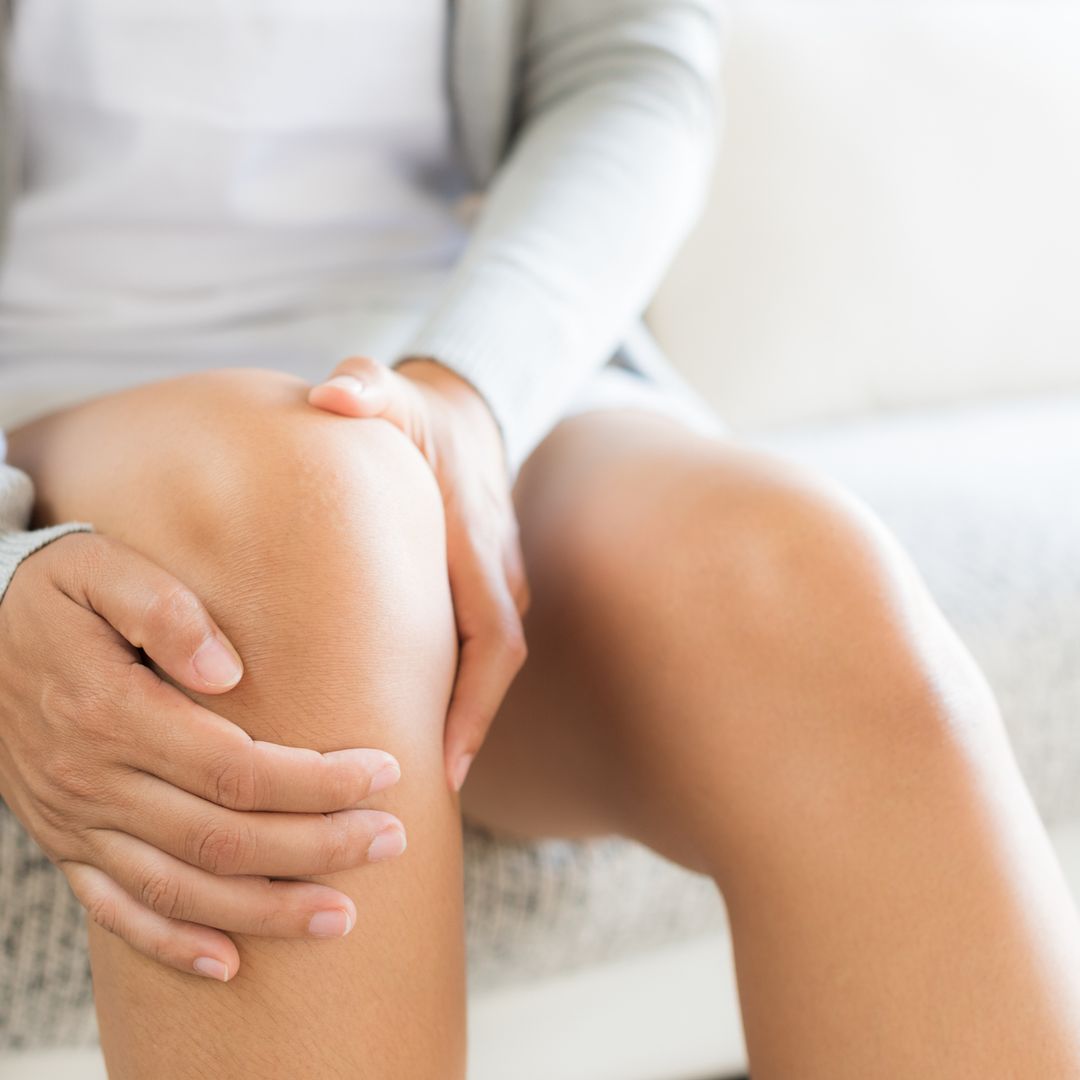Anyone who’s watched Legally Blonde will remember Reese Witherspoon’s iconic line: “Exercise gives you endorphins. Endorphins make you happy,” while defending her client, Brooke Wyndham.
While I'd never normally dispute the wisdom of Elle Woods, she hasn’t quite got it right when it comes to why exercise makes us happy.
“Endorphins play a bit into happiness, but they're not the whole picture,” explains exercise psychologist Dr Josephine Perry, who works with luxury gym group David Lloyd. “They’re a natural pain reliever and they kick in when you’ve worked your body and give you a little burst of happiness, but they won't make a big difference to your overall happiness.”
So why does exercise give us that buzzy, happy, post-workout feeling? Dr. Josephine explains...
Why does exercise make us happy?
1. Exercise is me-time
For many of us, our workout is the only time we do anything just for us. In a day full of to-do lists and errands for other people, exercise gives us a space where nobody is asking for a little piece of us, explains Dr. Josephine. It allows us to prioritise ourselves and carve out time in the day just for us - and for many of us, it’s the only time we don’t have our phones in hand.
“A gym session is the perfect time to ignore the notifications on your phone, forget your to-do list and put any worries aside to concentrate on the task in hand,” says HELLO!’s Homes Editor Rachel Avery.
“For me it's one of the only ways I can truly reset and recharge. It feels like a break from ordinary life and I enjoy blaring my music and getting in the zone on my own.”
Mum-of-two and HELLO! Website Editor Andrea Caamano agrees that exercise is me-time, and has recently joined boutique studio F45. “My sons are six and three, and up until now I really found it hard to find the time to exercise. Their schedule, mine, housework, life... it seemed impossible.
“But when I am at the gym, it's as if my brain stops working. I don't think about what's for dinner, or how much homework my kids have that evening, I don't think about how many emails I've left unanswered, I just think about pushing through the class and getting a good sweat in.
READ: The totally free way to ease anxiety, panic attacks and insomnia
“I feel like I reset myself. I usually exercise late in the afternoon, and if I've had a bad day, I look forward to it because I know I will let all my feelings go during the class and just reset my mind and body. I feel stress free and confident that I can conquer the next day.”
2. Exercise clears brain fog
If you’re familiar with that cloudy-headed feeling, you’ll be interested to know that exercise is one of the best ways to clear brain fog.
Exercise increases blood flow to your brain, which can get the mist moving, which is especially relevant for women in menopause, says Dr. Josephine.
“In menopause we're so tired and we have caring responsibilities for younger children and older parents, so we often don't have time to exercise, it's the last thing on our to-do list, but it's one of the best things we can do for our mood and short term memory.”
RELATED: How to work out during menopause according to a PT
3. Exercise helps us solve problems
If you’ve been going over and over a dilemma in your head, chances are you’re a bit stressed - and not all that happy. Exercise can help us problem solve because it gives us clarity.
“With exercise, if we've been trying to solve a problem we can get caught up in our thoughts,” says Dr. Josephine. “When we exercise, our brain is still working away in the background trying to fix it, but we don't actively focus on it, so we can get some really good answers.”
4. Exercise gives us a sense of achievement
“Dopamine, our reward chemical kicks in very quickly when we exercise, which is a nice way of feeling much more positive,” Dr. Josephine explains.
When you set goals - be it to run a faster 5km or touch your toes in yoga - and you achieve them, you get an instant dopamine buzz.
It’s a feeling HELLO!’s Online News Writer Ahad Sanwari can relate to. “I started working out as a way to relieve the anxiety that came with job hunting during the pandemic in 2021. Every time I completed a workout, it feels like I'm conquering the demon that wanted me to stay home and watch more TV,” he says.
As adults, it’s rare we set ourselves new goals, so the sense of achievement through working out feels doubly rewarding.
NEED TO KNOW: How to practice gratitude for a happier life: an expert's guide
5. Exercise clears anxiety
Working out gives us perspective, says Dr. Josephine. “It reduces anxiety because it gives you headspace,” she continues. “When you’re anxious, one of the physiological responses is that you get very focused on what is ahead of you. Exercise forces you to have perspective and concentrate on what is happening in that moment, which helps ground you so you can relieve anxiety symptoms.”
Fast track tips for exercise happiness
1. Put your playlist on shuffle
A good workout playlist is essential when it comes to exercise success. “Music is very powerful because it releases dopamine,” explains Dr. Josephine.
“Exercising with music gives you a double boost, but always puts your music on shuffle,” she advises. “If you know what music is coming next, you get nowhere near as big a buzz as if you don't know what's next.
“When you hear the first few beats of a track you love, you get an extra dopamine buzz, so music on shuffle will give you a bigger boost of happiness.”
DISCOVER: 13 of the busiest women we know share what makes them happy – and it's not what you'd expect!
Music is something that helps spin instructor Martha Burke get into the groove when she’s teaching at exercise studio 1Rebel.
“Music has this crazy thing of being able to push you through when the workout gets that little bit tougher. Not only does it give me an extra push it also helps focus my mind and almost escape the outside world.
“Music is a very special thing and makes exercise so much more enjoyable,” she adds.
2. Set exercise goals
Setting goals when it comes to working out helps us feel like we’re moving forward. “When we’re heading into midlife and beyond, we can feel like we’re moving slower or going backwards, says Dr. Josephine.
“Exercise is something that can help us feel like we’re constantly moving forward, she continues. “Set goals in your exercise to give yourself something to focus on ahead of you.
READ: What are limiting beliefs and why are they stopping you from feeling happy?
“When you achieve those goals, you get the dopamine buzz, but you also feel like you're moving forward in an age when you can feel you're getting stuck,” Dr. Josephine encourages.
3. Do NOT compare yourself to others
It can be tempting to compare yourself to the creme de la creme of the fitness world, but this kind of comparison will make you miserable, says Dr. Josephine.
Instead, look to people of a similar level to you for inspiration rather than comparing yourself to people in a different league.
DISCOVER: I cleared my 'incurable' brain fog and eased my anxiety in 10 minutes – here's how
Vicarious confidence is the term Dr. Josephine uses for this positive form of comparison. “Find someone who's like you and use them as a silent mentor,” she explains. “It opens doors to you to see what is possible for you and that helps with happiness. Rather than feeling envious, think 'what can I learn from them?'”
“I'm a marathon runner, but runners such as Paula Radcliffe don't inspire me, because they're so far removed from me,” Dr Josephine explains. “But there's a runner at my Park Run who used to be the same speed as me, but she's got really good and she inspired me because she's a bit like me and she's done it by working really hard, and makes me think maybe I can too.”
Visit our HELLO! Happiness hub for more ways to be happy every day

